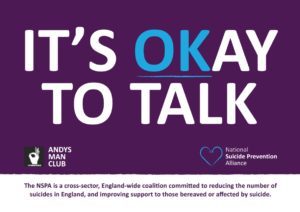 There are different kinds of abuse and it can happen anywhere. It occurs when someone exploits another person or treats them in a way that harms or hurts them. It can happen once or on multiple occasions. People who abuse are not always strangers. They can also be: partners, relatives, a friend, neighbour or carer.
There are different kinds of abuse and it can happen anywhere. It occurs when someone exploits another person or treats them in a way that harms or hurts them. It can happen once or on multiple occasions. People who abuse are not always strangers. They can also be: partners, relatives, a friend, neighbour or carer.
Types of Abuse
Some of the different types of abuse are described below.
Physical abuse
is when someone is physically harmed by another person, for example through assault, such as slapping, pushing, kicking or rough handling. It can also include the misuse of medication, or inappropriate sanctions or restraint.
Sexual abuse
relates to any sexual activity which the adult has not consented to, was not able to consent to or was pressured into consenting to. This can include rape, sexual assault or harassment, sexual photography, subjection to pornography or inappropriate touching.
Psychological abuse
includes emotional abuse, verbal assault, intimidation, bullying, cyber bullying, abandonment, threats of harm, humiliation or blaming. Any unjustified withdrawal of services or support networks is also a form of psychological abuse, as is not letting the person have choices or ignoring their wishes.
To report abuse,
contact Kent County Council on 03000 41 61 61 or if someone is in immediate risk, dial 999. Support will be provided by specially trained people to victims of abuse and those who report it
Kent County Council, Stop adult abuse – how to protect yourself and others (PDF, 107.2 KB)
www.kent.gov.uk/__data/assets/pdf_file/0013/13513/AdultAbuseLeaflet.pdf
 Walking can be fun:
Walking can be fun:




